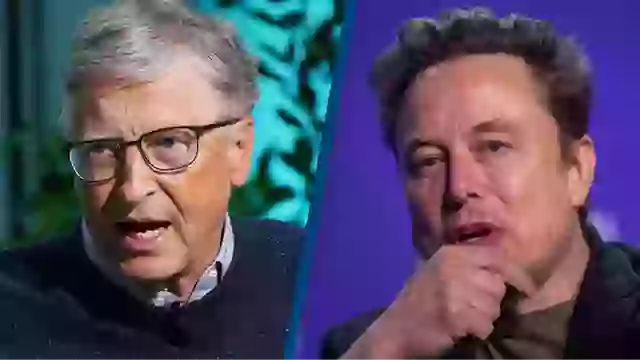Bill Gates has issued a forceful condemnation of Elon Musk’s leadership role within the U.S. Department of Government Efficiency (DOGE), accusing the billionaire of implementing cost-cutting policies that have endangered the lives of vulnerable populations, particularly children in the developing world.
Following the inauguration of President Donald Trump on January 20, a wave of sweeping executive actions has significantly altered the U.S. governmental landscape. Among the most polarizing developments is the appointment of Musk as head of DOGE, an initiative tasked with streamlining the federal workforce and reducing government expenditures.
Under Musk’s direction, DOGE has initiated substantial budget cuts across various federal agencies, with a pronounced focus on foreign aid. Notably, the U.S. Agency for International Development (USAID) — once the largest single provider of humanitarian assistance globally — has been targeted for closure. The agency employed approximately 10,000 personnel and disbursed over $40 billion in aid during the 2023 fiscal year.

Musk defended the closure by claiming systemic inefficiencies and corruption within USAID, referring to the organization as beyond reform. “You’ve got to basically get rid of the whole thing,” he said, likening the agency to “a ball of worms.”
Bill Gates has voiced strong opposition to these measures, arguing they have led to preventable suffering. In an interview with The Financial Times, Gates condemned the impact of the cuts on global health efforts, including the loss of critical medical supplies and nutrition aid. He warned of increasing incidences of preventable diseases such as measles, HIV, and polio in countries affected by the funding reductions.
Particularly concerning to Gates was the cancellation of support for a hospital in Gaza that provided services to prevent mother-to-child HIV transmission. He refuted claims that the aid had been misused, challenging Musk’s assertion that the U.S. was supplying condoms to extremist groups in the region. “I’d love for him to go in and meet the children that have now been infected with HIV because he cut that money,” Gates stated.
This criticism marks a continuation of a long-standing tension between the two prominent figures. Their disagreements date back over a decade, notably when Musk dismissed Gates’ support for the Giving Pledge — a campaign urging billionaires to donate at least half their wealth — as insincere.
Gates, now 69, has announced plans to allocate nearly his entire fortune through the Gates Foundation before its planned closure in 2045. His philanthropic focus includes investing $200 billion in global health, education, and disease eradication. However, he emphasized that even such a vast personal contribution cannot fully offset the budgetary vacuum left by the dismantling of USAID, which alone accounted for $44 billion in international aid last year.
Reflecting on his legacy, Gates remarked, “People will say a lot of things about me when I die, but I am determined that ‘he died rich’ will not be one of them. There are too many urgent problems to solve.”
Source: The Financial Times
